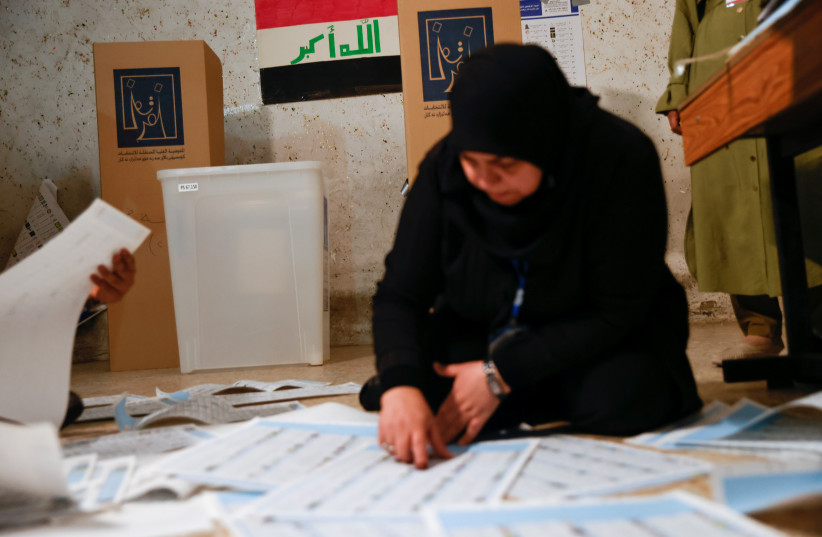Iraq may be having its own “stop the steal” protests, as pro-Iranian parties claim that voter fraud and hacked ballots may have led them to get fewer votes.
Protesters have gathered in Baghdad and are seeking to overturn the election. This could be similar to the January 6 crisis in the US, but with different implications.
Iraqis voted in an early election on October 10. While leading vote-getters included Muqtada al-Sadr’s party as well as the Kurdish KDP, some of the pro-Iran parties did not perform as well as they thought they would. These include the Fatah Alliance backed by pro-Iranian militias called the Hashd al-Shaabi.
The Hashd is itself part of the paramilitary forces of Iraq. Like Hezbollah, it also has a political party. They have now made allegations of hacking, voter fraud and also a conspiracy that they claim links the US and UAE to the “fraud.”
Allegations of fraud have led to recounts of ballots and a slow process of review. This has caused uncertainty with concerns about possible outbreaks of violence.

Back in 2019, the pro-Iran militias suppressed protests across southern Iraq, leading to hundreds of deaths. They are also accused of killing activists and academics and critics like Hisham al-Hashimi who was murdered in July 2020. Like the murder of Lokman Slim in Lebanon, this fits a pattern of Iran ordering mafia-style hits on critics.
It is a tense time in Baghdad. Overshadowed by reports of a coup in Sudan and also tensions in Syria, some are not paying close attention. In a message to neighboring countries, Shi'ite cleric Muqtada al-Sadr, who leads the Sadrist Movement that claimed victory in this month’s parliamentary election, announced in a tweet on Sunday that Iraq will not accept meddling in its affairs, but will welcome political and economic cooperation, Rudaw news reported this week. For “countries that have clearly interfered in Iraq's political, security and other matters,” Sadr said he will “open talks with them at a high level to put an end to their interference. If they respond to us, then we will welcome them, if not, we will resort to diplomatic and international means.”
Pro-Iran protesters have attempted to storm the Green Zone in Baghdad, according to a video published on the night of October 24. Groups like Asaib Ahl al-Haq are involved. Protest tents have been set up to pressure the government. The incitement in Iraq has included threats against the US and UAE.
Pro-Iran groups in Iraq have frequently used drones and rockets to attack US facilities. One commentator even claimed on October 18 that drones could be used against the UAE if the election results don’t change.
It remains to be seen if the pro-Iran groups in Iraq can pressure the election commission to get more votes or alter the results. So far, things have been peaceful but there are undercurrents of threats that illustrate that bad could come unless the groups linked to the Fatah Alliance get their way.
